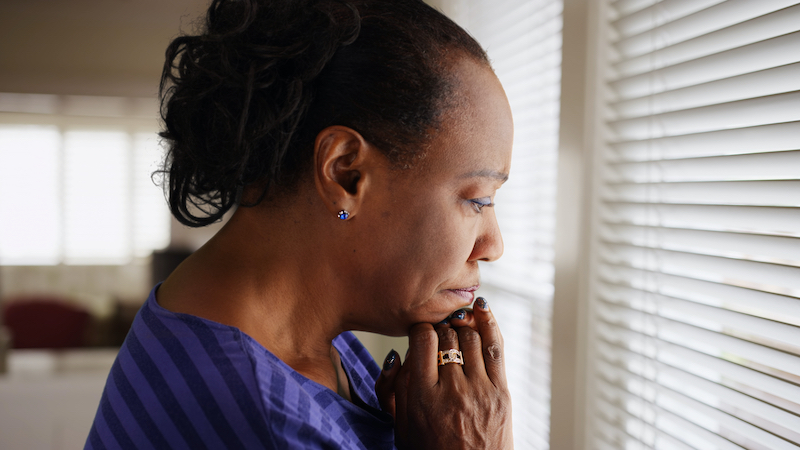Should I Intervene in My Adult Daughter’s Problem?
A mother is concerned about her daughter’s eating disorder

When she suspects that her adult daughter may once again be experiencing an eating disorder, this mom wonders if she should intervene in her adult daughter’s problem. See what advice columnist Amy Dickinson has to say in this edition of “Ask Amy.”
Dear Amy:
My daughter is 33, living on her own, thriving in her career, and in most aspects doing very well. She lives in a different city, so I only see her several times a year. We talk on the phone often.
When she was a teenager, she had an eating disorder (anorexia). We intervened and took her to an expert therapist who worked with her for two years. She developed many tools to deal with her disordered eating.
Stress is a trigger and can send her into anxiety disorder behaviors.
She is currently trying to relocate to another state, and I am concerned (mostly from her social media posts) that she may be dealing with disordered eating habits again. She looks very thin.
Her brother told me that he is very concerned, but he doesn’t feel she would be open to any concerns/suggestions he may have.
She is ultra-sensitive when I question anything about her eating.
When she was in therapy her therapist had told the family members that we needed to let her make her own choices about food – to put her in control.
I fear she’s dealing with her current stress in a way that is unhealthy.
How do you suggest I best help without alienating her?
– Concerned Parent
Dear Concerned:
As with some other diseases, eating disorders can flare – even many years after successful treatment. Stress is a definite risk factor, and can lead to a relapse.
Understand a basic truth: We all become most defensive when confronted with our deepest vulnerabilities.
Your daughter is an adult. She is ultimately responsible for managing her health.
Her eating disorder can be considered a chronic disease. If she had an auto-immune disease (also triggered by stress), you would want to prompt her to take care of her health.
Expressing your concern in a loving way might trigger a defensive reaction.
Would you intervene in your adult daughter’s problems? More on improving relationships with grown children.
And yet – you are her mother, and if you are brave enough to talk to her, you will be demonstrating that you care, that you are on her side, that you see her eating disorder as an illness and not a character flaw, and that you are available for help if she needs it.
Talk to her: “This is such a stressful time for you. I’m worried that your eating disorder could flare. How are you managing your health right now? Can I help you in any way?”
She may respond, “Mom – stop.” And that’s OK. You can respond, “Honey – I do worry, but I can handle my own anxieties. I just want you to know that I’ve got your back. Always.”
The National Eating Disorders Association offers helpful advice for families.
Want to get even more life tips from Amy? Read more of her advice columns here!
In the tradition of the great personal advice columnists, Chicago Tribune’s Amy Dickinson is a plainspoken straight shooter who relates to readers of all ages. She answers personal questions by addressing issues from both her head and her heart – ranging from a mother fretting over her adult daughter’s problems to DNA surprises. A solid reporter, Dickinson researches her topics to provide readers with informed opinions and answers. Ask Amy, P.O. Box 194, Freeville, NY 13068
© 2021 by Amy Dickinson


